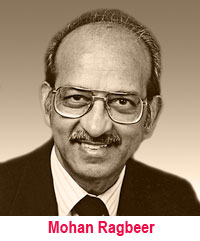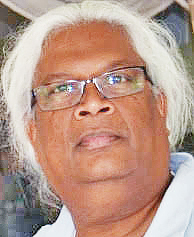Opinions
Modi returned

The Indian elections increased Modi’s BJP Lok Sabha complement to 352/542 seats from 282, with INC 91 and other parties 99 at time of writing (NDTV). He missed some 2014 goals but performed confidently and faced fierce odds, some internal, many from Pakistan, and unfriendly moves from China and America, which cancelled India's favoured status. The US is untrustworthy, capricious and self-seeking, and demands cautious handling. Its obstruction of India’s nuclear, space and other high technology programs and associated killings were warnings enough. China has
placed a maritime noose around India, covets the entire Himalayas and would swiftly swallow Nepal, Bhutan and the Indian province of Arunachal Pradesh. It can rely on Pakistan, on quislings (millions) among the Indian Communist Parties (CPI)) – schooled in dialectic materialism, deception, and sabotage – who continue to peddle mangled versions of Indian history, from university and NGO bases in Delhi, Mumbai, Kolkata and other centres, ignoring the corrections and exposés of British deceit, e.g. Dr Ram Puniyani, retired university professor, leftist, anti-Hindu, pro-Muslim, and pro-American. Modi is unabashedly Hindu – better stated as Sanatan Dharmic, or Dharmic – and intent on restoring its status, which the INC neglected; voters wished to stress the Dharmic origin of Indian culture, and reverse, or stay the erosion caused by Islam and Christianity, the two militant and proselytising conquerors that brainwashed converts into loyal subservience, Hindu-bashing, and imprisoned or eliminated millions refusing conversion.
Voters wished to free Dharma from the confining Abrahamic model giving it one scriptural text (Bhagavad Gita), a trinity of Gods (Brahma, Vishnu and Shiva), set rules (Manusmriti), doctrinal deviation (Sikhism), wars of conquest, class and hegemony (Brahmins), etc., and restore the options inherent in Sanatan Dharma. Voters wished to preserve their homeland, arguing correctly that the Abrahamic creeds owned the rest of the world; while the Dharmic religions have seen theirs shrink in the last thousand years, and their people stolen by flattery and bribes by wealthy Christian and Muslim proselytes. Kashmir, for example, is a majority Muslim state, and saw its Hindu population banished from ancestral homes, under the INC watch. The media are largely ignorant of this majority. Over 150 million are poor, landless and scrounge for work. State political parties ignore them, favouring refugees and illegal immigrants, who can become instant loyal voters! Much media coverage, local and foreign, is anti-Modi, anti-BJP and anti-Hindu, while they watch the Abrahamic miscreants terrorise the world!
With India’s renewed backing, Modi’s foreign policy must deal cautiously and resolutely, not cosily, with China, the USA and their agent, Pakistan. How Gandhi’s spirit must be writhing, knowing that he could have refused partition, and not resurrect Jinnah seven decades ago. Partition suited NATO, allowing American Arms manufacturers to profit from animosities and divisions, foment dissent (CIA), and decrease resistance.
The RSS founder, Deendyal Upadhyaya, believed that Hindus and Muslims could not unite. He was right, as far as religion goes; just read the Quran and Hadith, and heed the dictates of today’s Wahhabis, Sharia Law, and their extremist rejection of Dharma, automatically and irrevocably dividing the two, and eliminating Hindus from wherever they had been a minority in Pakistan. The regrettable loss of Muslims at the hands of Hindus, which so feverishly exercise Western media, pales into insignificance. Two secular countries could have regained a modus vivendi, but there is no secular Islam. Dharma tolertaed Islam and other religions for centuries, rescued Jews, Parsis, and others; the main Baha’i temple is in Delhi; certain sects of Islam (Sufi, Ahmadiyyas, Ishmaelis) could call India home. By contrast, the base of Islam, Saudi Arabia, is intolerant of any show of another religion. Yet the West harps on “fundamentalism” whenever referring to the BJP and seems oblivious to the excesses of their pet religions, which killed millions of Hindus.
Modi’s challenge is to cope with this reality and to find a formula to exploit the basic peacefulness of the individual Muslim, and curb the ease with which the mullahs can whip them into a frenzied group.
In the past 50-60 years several intellectuals have addressed the status and future directions of Hindus, taking cues from Savarkar, Golwarkar, Upadhyaya, Raghu Vira, Shastri, the last three murdered at key points in India’s struggle to recover from British hegemony. Shastri had something positive to advocate against Pakistani (Muslim) terrorism; Upadhyaya formulated the philosophy of integral humanism based on Gandhian principles such as sarvodaya (everyone’s progress), swadeshi (Indianisation), and Gram Swaraj (village self-rule). Raghu Vira showed how. Yet these views are called extreme. Why?
Voters wished to free Dharma from the confining Abrahamic model giving it one scriptural text (Bhagavad Gita), a trinity of Gods (Brahma, Vishnu and Shiva), set rules (Manusmriti), doctrinal deviation (Sikhism), wars of conquest, class and hegemony (Brahmins), etc., and restore the options inherent in Sanatan Dharma. Voters wished to preserve their homeland, arguing correctly that the Abrahamic creeds owned the rest of the world; while the Dharmic religions have seen theirs shrink in the last thousand years, and their people stolen by flattery and bribes by wealthy Christian and Muslim proselytes. Kashmir, for example, is a majority Muslim state, and saw its Hindu population banished from ancestral homes, under the INC watch. The media are largely ignorant of this majority. Over 150 million are poor, landless and scrounge for work. State political parties ignore them, favouring refugees and illegal immigrants, who can become instant loyal voters! Much media coverage, local and foreign, is anti-Modi, anti-BJP and anti-Hindu, while they watch the Abrahamic miscreants terrorise the world!
With India’s renewed backing, Modi’s foreign policy must deal cautiously and resolutely, not cosily, with China, the USA and their agent, Pakistan. How Gandhi’s spirit must be writhing, knowing that he could have refused partition, and not resurrect Jinnah seven decades ago. Partition suited NATO, allowing American Arms manufacturers to profit from animosities and divisions, foment dissent (CIA), and decrease resistance.
The RSS founder, Deendyal Upadhyaya, believed that Hindus and Muslims could not unite. He was right, as far as religion goes; just read the Quran and Hadith, and heed the dictates of today’s Wahhabis, Sharia Law, and their extremist rejection of Dharma, automatically and irrevocably dividing the two, and eliminating Hindus from wherever they had been a minority in Pakistan. The regrettable loss of Muslims at the hands of Hindus, which so feverishly exercise Western media, pales into insignificance. Two secular countries could have regained a modus vivendi, but there is no secular Islam. Dharma tolertaed Islam and other religions for centuries, rescued Jews, Parsis, and others; the main Baha’i temple is in Delhi; certain sects of Islam (Sufi, Ahmadiyyas, Ishmaelis) could call India home. By contrast, the base of Islam, Saudi Arabia, is intolerant of any show of another religion. Yet the West harps on “fundamentalism” whenever referring to the BJP and seems oblivious to the excesses of their pet religions, which killed millions of Hindus.
Modi’s challenge is to cope with this reality and to find a formula to exploit the basic peacefulness of the individual Muslim, and curb the ease with which the mullahs can whip them into a frenzied group.
In the past 50-60 years several intellectuals have addressed the status and future directions of Hindus, taking cues from Savarkar, Golwarkar, Upadhyaya, Raghu Vira, Shastri, the last three murdered at key points in India’s struggle to recover from British hegemony. Shastri had something positive to advocate against Pakistani (Muslim) terrorism; Upadhyaya formulated the philosophy of integral humanism based on Gandhian principles such as sarvodaya (everyone’s progress), swadeshi (Indianisation), and Gram Swaraj (village self-rule). Raghu Vira showed how. Yet these views are called extreme. Why?
Wondering why the strange experiences
 Romeo Kaseram
Romeo Kaseram
Over the years I have traveled in a few taxis back home, and in cabs in different parts of the world I have been fortunate to visit. When I do, I keep in mind that to inhabit a taxi, or a cab, is to reside in a temporality connecting the fixed points of embarkation and disembarkation, held stationary in a state of fluidity while I am immobilised inside the moving vehicle.
More and more I have come to notice over the years that to inhabit such a spatiality makes for strange, and at times ambivalent experiences. In fact, a few of these have turned out to be quite other-worldly.
Sometimes I wonder why on this earth I seem to attract these strange experiences. I am recalling a rather eventful trip back home in a taxi during a visit a few years ago. Since I believe the market is a true litmus test of what it means to reside in a particular location at a given moment of time, this occurring inside a transient window on a market-day, I always make it a rule to visit these sites hoping to catch heightened activity at its busiest, mostly during the weekend hours.
As we all know, a thriving market is an aggregation of many known and unknown worlds drawn together into a fixed space during the passage of time. The market brings into confluence from near and far a smorgasbord of sensory experiences.
It coalesces in its acreage a location’s many foods, goods and services, and hierarchies of people from the upper crust to the barefooted with crusty feet, the differing cadences of languages, spectrums of the visual in colours of skin, clothing, and even hair-types, and many varying modes of transportation.
Thus, among its many hubs back home is what is known as the taxi-stand. This area of the market is more than a gateway. In itself, it is a temporality of mobility and ongoing transferences, and so tends to be among the busiest, and thriving of localities.
I was quite exhausted after my wandering feet took me through the entire market for experiences ranging from the heavenly scent of fresh-baked bread clinging to my open-necked shirt, to the rot of fish sticking to the rubber soles of my shoes. I also stopped numerous times to listen to the changing dialects, the newness of words used in a range of nuances, and to touch the textures of many alien-looking fruits. After all of these heightened sensory experiences, I decided to take a taxi, finally noting the location of the “stand” to be at the entrance to the bustling hive.
It was only after I was ensconced in the back seat did I recall with sudden and growing dread, having lived abroad for many decades, that this mode of transport back home is a communal, shared one.
Soon the vehicle was cramped with other passengers so visibly sweaty they continuously mopped their foreheads with damp handkerchiefs, and were noticeably odoriferous under the arms from the assailing, tropical heat. One lady entered the taxi burdened with a shopping bag bristling with the spiky crown of a pineapple. Another passenger, oblivious to the tight real estate in the compact car, entered contentedly slurping from a tenuously lopsided sno-cone, its peak appetisingly snowbound with condensed milk.
In the cramped quarters of the back seat, with barely enough leg-room to aid circulation of blood and air, a dainty young man with greased curls and highly-manicured fingernails, totally unaware of the meaning of xenophobia, and completely at ease with overlapping folds of flesh sticky with sweat and vulnerable to the glue resident in a drop of condensed milk, suddenly broke out into song in accompaniment to the soft-playing radio in the taxi. He sang in falsetto, with a voice so thin it rasped like a dull razor grating along stubborn stubble during a morning shave.
This untrained voice was chalked with an undetectable pebble scraping along a chalkboard. It rose and fell like sandpaper being rubbed along the cadence of the songster on the radio, and was raised in pitch so it climbed above the imagined cascade of water streaming from this stranger’s morning shower.
We journeyed into a sea of humidity, the windows of the car rolled down, serenaded by our companion. His song continued without skipping a beat during those moments when we were lifted off the seat after the car hit a pothole, the sno-cone perilously close to spilling its thick, indelible red syrup and white condensed milk.
Finally at his destination, the provider of this random act of singing disembarked only after failing in a querulous argument with the taxi driver for having to pay for the fare, wondering aloud why he was being charged for the trip despite providing free entertainment.
Following his failure to abscond without paying the fare, he then harangued his fellow passengers, annoying us with added humidity by demanding a fee. His plan was to further refine his talent for song.
I watched his back with relief, the other eye fixed on the pineapple and the tilted sno-cone.
As we all know, a thriving market is an aggregation of many known and unknown worlds drawn together into a fixed space during the passage of time. The market brings into confluence from near and far a smorgasbord of sensory experiences.
It coalesces in its acreage a location’s many foods, goods and services, and hierarchies of people from the upper crust to the barefooted with crusty feet, the differing cadences of languages, spectrums of the visual in colours of skin, clothing, and even hair-types, and many varying modes of transportation.
Thus, among its many hubs back home is what is known as the taxi-stand. This area of the market is more than a gateway. In itself, it is a temporality of mobility and ongoing transferences, and so tends to be among the busiest, and thriving of localities.
I was quite exhausted after my wandering feet took me through the entire market for experiences ranging from the heavenly scent of fresh-baked bread clinging to my open-necked shirt, to the rot of fish sticking to the rubber soles of my shoes. I also stopped numerous times to listen to the changing dialects, the newness of words used in a range of nuances, and to touch the textures of many alien-looking fruits. After all of these heightened sensory experiences, I decided to take a taxi, finally noting the location of the “stand” to be at the entrance to the bustling hive.
It was only after I was ensconced in the back seat did I recall with sudden and growing dread, having lived abroad for many decades, that this mode of transport back home is a communal, shared one.
Soon the vehicle was cramped with other passengers so visibly sweaty they continuously mopped their foreheads with damp handkerchiefs, and were noticeably odoriferous under the arms from the assailing, tropical heat. One lady entered the taxi burdened with a shopping bag bristling with the spiky crown of a pineapple. Another passenger, oblivious to the tight real estate in the compact car, entered contentedly slurping from a tenuously lopsided sno-cone, its peak appetisingly snowbound with condensed milk.
In the cramped quarters of the back seat, with barely enough leg-room to aid circulation of blood and air, a dainty young man with greased curls and highly-manicured fingernails, totally unaware of the meaning of xenophobia, and completely at ease with overlapping folds of flesh sticky with sweat and vulnerable to the glue resident in a drop of condensed milk, suddenly broke out into song in accompaniment to the soft-playing radio in the taxi. He sang in falsetto, with a voice so thin it rasped like a dull razor grating along stubborn stubble during a morning shave.
This untrained voice was chalked with an undetectable pebble scraping along a chalkboard. It rose and fell like sandpaper being rubbed along the cadence of the songster on the radio, and was raised in pitch so it climbed above the imagined cascade of water streaming from this stranger’s morning shower.
We journeyed into a sea of humidity, the windows of the car rolled down, serenaded by our companion. His song continued without skipping a beat during those moments when we were lifted off the seat after the car hit a pothole, the sno-cone perilously close to spilling its thick, indelible red syrup and white condensed milk.
Finally at his destination, the provider of this random act of singing disembarked only after failing in a querulous argument with the taxi driver for having to pay for the fare, wondering aloud why he was being charged for the trip despite providing free entertainment.
Following his failure to abscond without paying the fare, he then harangued his fellow passengers, annoying us with added humidity by demanding a fee. His plan was to further refine his talent for song.
I watched his back with relief, the other eye fixed on the pineapple and the tilted sno-cone.
